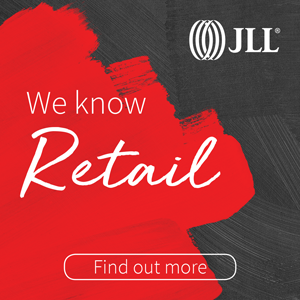Racial Bias in Retail Stores an Issue in Canada: Expert
/Photo: CSICOP.org
By Mario Toneguzzi
Racial bias in retail stores has become a very hot and controversial topic these days with Starbucks leading the way in the industry with training programs for its staff.
Canadian retail security expert Stephen O’Keefe said the issue is relevant now because the coffee giant is closing all of its stores in Canada for part of the day on June 11 for training and “it’s going to cost them a considerable amount in salaries plus the loss of sales for part of the day.”
“Racial profiling is not legal obviously because you’re protecting a race and class and gender and age and all these things that are protected. We know that racial profiling is bad,” says O’Keefe.
Photo: BEHOLDINGEYE / ISTOCK
“But the way that it happens in the case of retail like Giant Tiger in Winnipeg remember when they were following the aboriginal guy, the reason racial profiling happens is because risk management is about looking at history, looking at trends and about trying to predict the future. And when you do that you create a profile. This is not a bad thing. This is risk management 101. So you’re trying to create a profile to say ‘what should I be looking for in terms of things that happened in the past?’ When you get into crossing that line and getting into the negative part of profiling is when you have looked at it and said ‘x per cent of my past arrests are people who look like this’ and whatever the descriptor that you want. Age, sex or colour of skin.”
O’Keefe said the problem is when retailers profile the next person that comes in and in your staff’s mind they have more of a likelihood to be a criminal from your past experience.
“That’s where it goes wrong,” says O’Keefe.
Photo: OneWorldIdentity.com
O’Keefe, President of Bottom Line Matters, a web-based loss prevention and risk management solutions company, based out of Toronto, for small to mid-sized retailers, has had many years of experience with some of the giant retailers in Canada and globally.
O’Keefe was Walmart Canada’s VP Loss Prevention & Risk Management for 15 years. He currently advises on loss prevention affecting shrinkage and profitability for retailers and has more than 30 years experience in retail theft prevention with some of Canada’s largest retailers.
He is considered a leading authority on loss prevention, security, risk management, health and safety and process improvement.
Before establishing his own consultancy firm, O’Keefe held a variety of loss prevention management positions with Sears Canada, Zellers, The Hudson's Bay Company and Walmart Canada.
In 2016, he was awarded the Retail Council of Canada’s Loss Prevention Lifetime Achievement Award.
“There’s a way of preventing a loss prevention person from profiling. That’s where the training comes in to say don’t look at past history. Understand the history but look at everybody as an equal opportunity if you will,” says O’Keefe.
“When you’re watching for shoplifters, you’re probably profiling. When you’re observing the behaviour of customers, you’re not profiling. There’s a fine line between that. And it takes the skill of understanding what a shopper looks like for you to be aware or be made aware of a shoplifter because they do something different. Don’t look for the difference, don’t look for someone that’s giving off signs of being a shoplifter or being different. Look and understand what shoppers look like because when you see something that’s abnormal your senses will say something’s abnormal.”
Mario Toneguzzi, based in Calgary has 37 years of experience as a daily newspaper writer, columnist and editor. He worked for 35 years at the Calgary Herald covering sports, crime, politics, health, city and breaking news, and business. For 12 years as a business writer, his main beats were commercial and residential real estate, retail, small business and general economic news. He nows works on his own as a freelance writer and consultant in communications and media relations/training. Email: mdtoneguzzi@gmail.com














![L.L.Bean Continues Canadian Expansion with 1st Toronto Store [Photos]](https://images.squarespace-cdn.com/content/v1/529fc0c0e4b088b079c3fb6d/1603908990197-KDT3UNTEHFBFJF5FJ36N/L.L.Bean_Don_Mills_8.jpg)









![Retail-insider-NRIG-banner-300-x-300-V01-3[2].jpg](https://images.squarespace-cdn.com/content/v1/529fc0c0e4b088b079c3fb6d/1593476525034-QRWBY8JUPUYFUKJD2X9Z/Retail-insider-NRIG-banner-300-x-300-V01-3%5B2%5D.jpg)
![Retail-insider-NRIG-banner-300-x-300-V01-2[2].jpg](https://images.squarespace-cdn.com/content/v1/529fc0c0e4b088b079c3fb6d/1593476491497-W6OZKVGCJATXESC9EZ0O/Retail-insider-NRIG-banner-300-x-300-V01-2%5B2%5D.jpg)
![Retail-insider-NRIG-banner-300-x-300-V01-4[2].jpg](https://images.squarespace-cdn.com/content/v1/529fc0c0e4b088b079c3fb6d/1593476508900-TJG5SNQ294YNOCK6X8OW/Retail-insider-NRIG-banner-300-x-300-V01-4%5B2%5D.jpg)